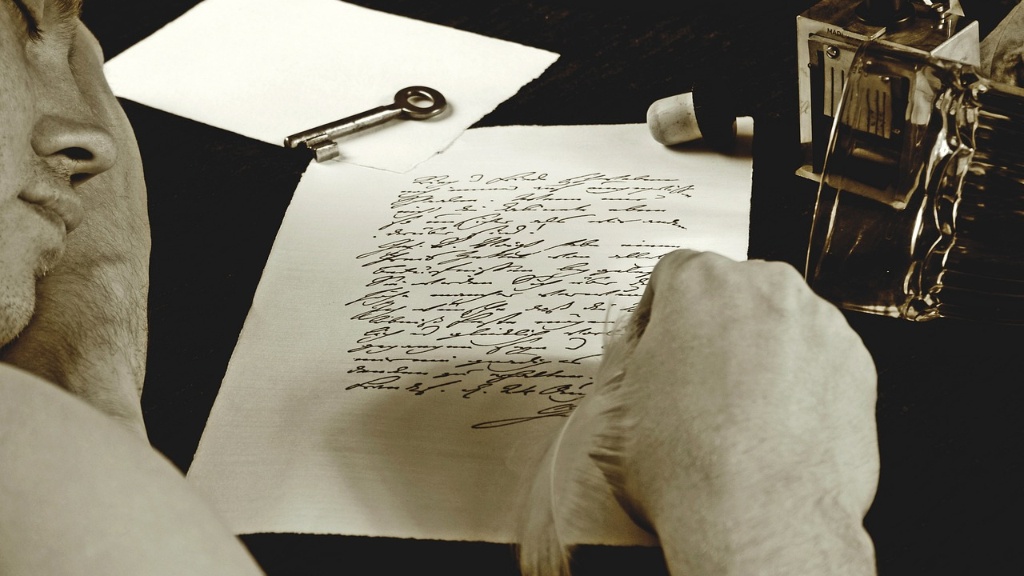Background Information
English poetry has been around since the time of Beowulf in the 8th century, but the father of English poetry is widely accepted to be Chaucer, born in London around 1343-1345 and died in 1400. Chaucer is famous for writing the classic The Canterbury Tales, written in Middle English and set during the 15th century. He is credited with helping to introduce a more poetic style of writing to English literature, which made it more enjoyable and attractive to a new audience. Chaucer has been influential in the development of English poetry for centuries.
Chaucer’s Influence
Chaucer’s influence on English poetry cannot be overstated. His works were among the first to use imagery, figurative language, and other poetic devices. He is also important for his use of the iambic pentameter, which is a meter used in the writing of many of the most famous works of English poetry, such as those by William Shakespeare, John Donne, and Edmund Spenser. His use of rhyme and alliteration further helped to spur the development of a more poetic style of writing.
The Canterbury Tales
The Canterbury Tales is arguably Chaucer’s best-known work and is widely considered to be one of the greatest works of English literature. It is a collection of short stories written in Middle English, mostly in verse form, and set during the 14th century. The stories deal with various characters and their journey to the shrine of Thomas Becket at Canterbury Cathedral. The tales are often humorous and deal with complex topics such as religion, courtly love, and social status. The Canterbury Tales has been translated into many languages and adapted into various forms of media, including films, television shows, and plays.
Chaucer’s Legacy
Chaucer’s legacy as the father of English poetry is cemented by his many contributions to the development of poetry. His work has had a lasting impact on the English language and literature. He has inspired countless poets, writers, and scholars over the centuries, and The Canterbury Tales remains one of the most beloved works of English literature. He is widely considered to be one of the most significant figures in the history of English literature and the father of modern English poetry.
Offshoots of Chaucer’s Poetry
Chaucer not only helped to pioneer a new and more poetic style of writing, but his influence can be seen in the work of many of his contemporaries and followers. Writers like William Shakespeare, Edmund Spenser, and John Donne employed many of the same poetic techniques and devices that Chaucer did in their work. The 17th century is particularly noted for the rise of the metaphysical poets, who used intricate language and philosophical musings to explore the nature of reality. The Romantic and Victorian periods were also characterized by a continued exploration of philosophy and religion in poetry, something that can be traced back to Chaucer and the influence of The Canterbury Tales.
Expert Insight
Experts agree that Chaucer had a profound influence on English literature and poetry. According to David Daiches, a professor of English poetry at the University of Edinburgh, “Chaucer’s influence was so extensive that it is difficult to discuss English literature…without frequent references to him. He wrote in a conventional style, in which the poet touches upon many of the concerns of his age, but he also had an individual talent and has been credited with writing some of the earliest masterpieces in English poetry.”
Modern Adaptations
Even in modern times, Chaucer’s influence can be seen in the works of many contemporary authors. For example, Ben Lerner, a Pulitzer Prize-winning novelist, has written a number of poems that pay homage to Chaucer’s style. His poem “The Ritual” uses many of the same sound devices and figurative language that Chaucer employed in The Canterbury Tales.
Analysis and Insights
Chaucer’s impact on English literature cannot be overstated. He was one of the first poets to use figurative language and poetic devices in his work and his influence has lasted for centuries. His work helped to usher in a new era of English poetry and his influence can be seen in the works of contemporary authors such as Ben Lerner. Chaucer’s legacy as the father of English poetry will continue to be felt in the years to come.
Chaucer’s Role in the History of English Literature
Chaucer’s role in the history of English literature is quite significant. He is credited with helping to bring a more poetic style of writing to English literature and inspiring countless authors over the centuries. His work has had a lasting impact on the development of English literature and poetry, and he is widely considered to be the father of English poetry.
Interpretations of Chaucer’s Poetry
Chaucer’s works have been interpreted in a variety of ways over the years. Scholars have argued that many of his works are filled with subtle moral messages, as well as complex questions about morality and religion. Others have argued that his work is prescient, in that he was able to anticipate and capture the complexities of the human condition in ways that still feel relevant hundreds of years later.
Chaucer’s Impact on the English Language
In addition to his influence on English literature, Chaucer’s works had a significant impact on the English language. He was one of the first poets to use modern English rather than Middle English and was among the first to use iambic pentameter. His use of rhyme and alliteration also had a great influence on the development of English poetry and helped to popularize the use of poetic devices.
Continued Appreciation of Chaucer
Chaucer’s work is still widely appreciated in the present day. Every year hundreds of thousands of people travel to Canterbury Cathedral to pay their respects to the father of English poetry. There are also a number of festivals, such as Chaucer in Oxford and the Canterbury Festival, dedicated to his life and work. His work has been adapted for the stage, the screen, and the page, and The Canterbury Tales is still widely regarded as one of the greatest works of English literature.



